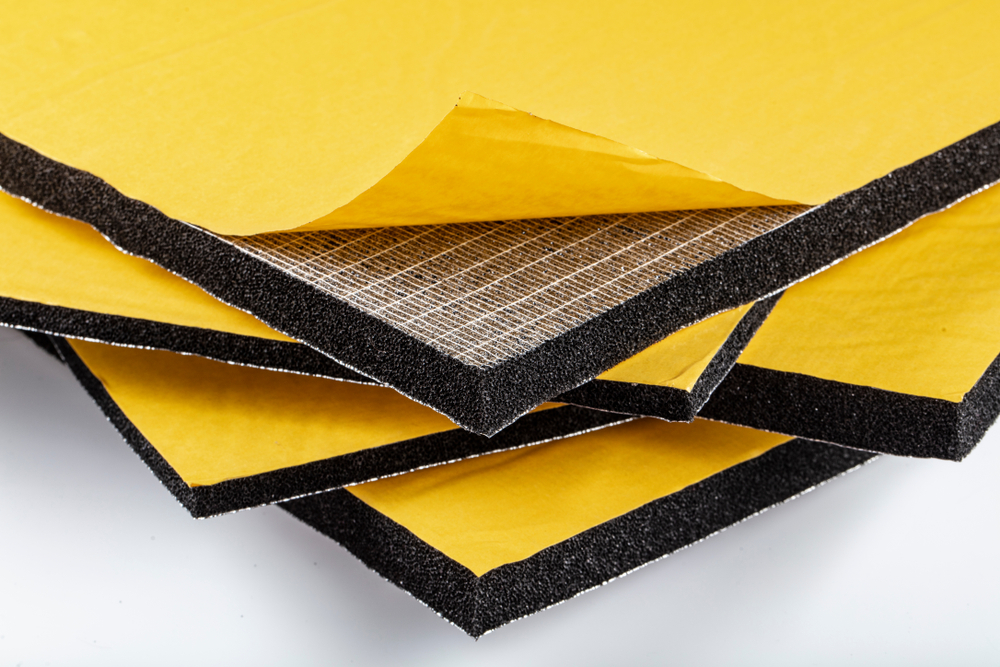Benefits and Applications of Thermal Acoustic Insulation
As energy efficiency becomes increasingly important, the demand for high-performance materials like thermal acoustic insulation grows, too.
Understanding the benefits and applications of thermal acoustic insulation can help you make informed decisions when selecting insulation solutions – let Smartech guide you through this decision.

The Benefits of Thermal Acoustic Insulation
Energy Efficiency
By reducing heat transfer between interior and exterior spaces, thermal acoustic insulation helps maintain a stable temperature within buildings or vehicles. This means less energy is required to heat or cool the space, leading to significant cost savings over time. In industries such as construction, where energy costs can account for a substantial portion of operational expenses, thermal insulation is a cost-effective way to enhance sustainability and reduce environmental impact.
Soundproofing and Noise Reduction
Another benefit of thermal acoustic insulation is soundproofing. This insulation is highly effective at absorbing sound waves and minimizing noise pollution. In environments like residential and commercial buildings, noise from adjacent rooms or external sources can be significantly reduced, creating a quieter and more peaceful atmosphere.
Comfort and Well-Being
Thermal acoustic insulation directly impacts the comfort and well-being of occupants in a variety of environments. In homes, it can help maintain a consistent indoor temperature, keeping residents comfortable regardless of outdoor weather conditions. In offices and other commercial spaces, thermal acoustic insulation enhances employee comfort, leading to improved productivity and overall satisfaction.
Extended Equipment Lifespan
In industrial settings, thermal acoustic insulation can play a pivotal role in extending the lifespan of equipment. Regulating temperatures and reducing heat exposure to critical components prevents wear and tear caused by excessive heat. This translates into lower maintenance costs, fewer repairs, and a longer operational life for machinery.
Additionally, thermal insulation protects electrical systems and components from overheating, reducing the risk of malfunctions or fire hazards. In industries that rely on sensitive equipment, such as data centers or manufacturing facilities, thermal insulation helps maintain safe and optimal operating conditions.
Environmental Impact and Sustainability
Thermal acoustic insulation also contributes to reducing the overall environmental impact of various industries. By improving energy efficiency and reducing the need for excessive heating or cooling, it helps lower greenhouse gas emissions. Many modern insulation materials are also made from sustainable or recyclable materials.
Applications of Thermal Acoustic Insulation
Construction and Building Design
One of the most common uses of thermal acoustic insulation is in residential and commercial construction. Builders incorporate it into walls, ceilings, and floors to regulate temperature and minimize noise transmission between rooms or from the outside. Whether in new construction or retrofitting existing buildings, thermal insulation is an effective solution for enhancing energy efficiency and comfort.
In green building projects, thermal acoustic insulation plays an important role in reducing the environmental impact of buildings. Many insulation materials used today are designed to meet strict energy efficiency standards, making them essential for sustainable construction.
Automotive Industry
Thermal acoustic insulation is widely used in the automotive industry to improve vehicle performance and passenger comfort. It is applied to the engine compartments, doors, floors, and roofs of vehicles to minimize heat transfer and reduce engine and road noise. High-quality insulation materials help ensure that vehicles operate more quietly, with enhanced temperature regulation, improving the overall driving experience.
In electric vehicles (EVs), thermal insulation is crucial for maintaining battery temperature, preventing overheating, and extending battery life. As the EV market grows, advanced insulation technologies will continue to be essential in optimizing vehicle performance and safety.
Industrial Applications
Industrial environments often involve extreme temperatures and high levels of noise. Thermal acoustic insulation is used in manufacturing facilities, power plants, and other industrial settings to protect machinery, reduce heat loss, and minimize noise pollution. By insulating equipment and pipelines, businesses can reduce energy costs and protect workers from potentially hazardous conditions.
Marine and Aerospace Sectors
The marine and aerospace industries rely on thermal acoustic insulation to maintain comfortable temperatures and reduce noise in cabins, cockpits, and other occupied areas. In aerospace applications, insulation is used to protect sensitive components from extreme temperatures and vibrations, ensuring the safety and reliability of aircraft and spacecraft.
In marine vessels, thermal acoustic insulation helps regulate temperature in engine rooms and living quarters, reducing noise from engines and ensuring a more comfortable environment for passengers and crew.
Discover Smartech’s Thermal Acoustic Insulation Solutions
If you’re ready to explore advanced thermal acoustic insulation solutions for your specific needs, Smartech can help. With Smartech’s high-quality materials, you can enhance performance, reduce costs, and create more energy-efficient and comfortable environments.
Looking for More Information?
Check out our Resources or Contact Us
